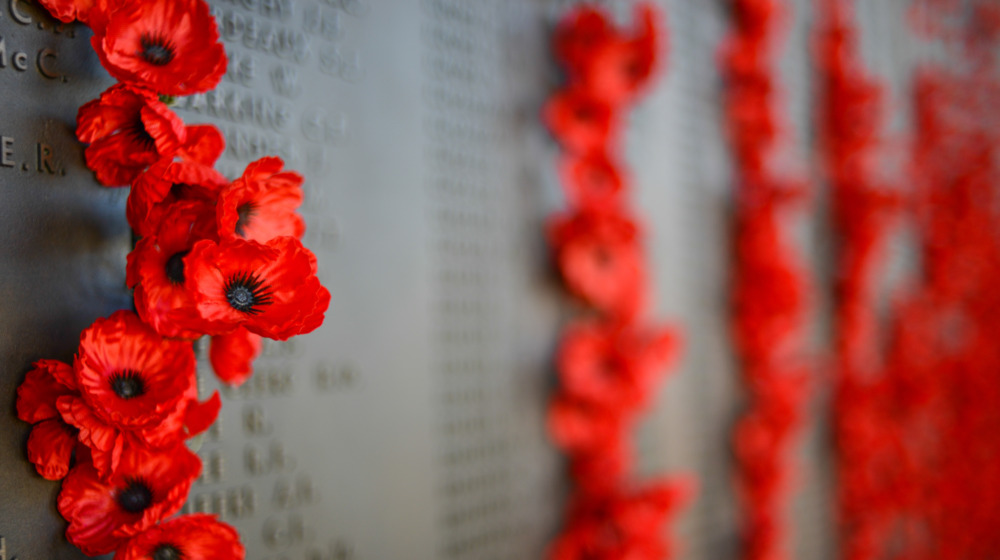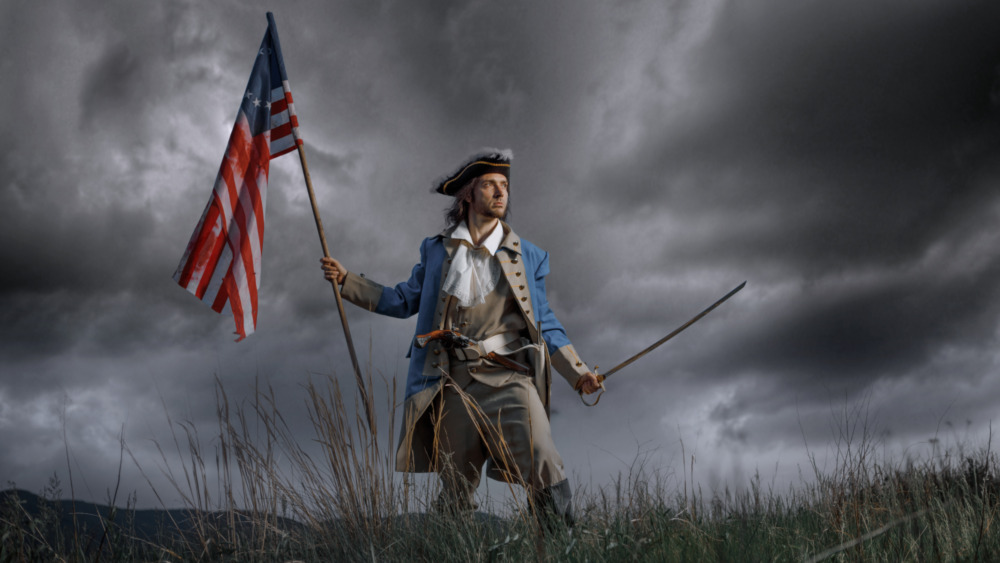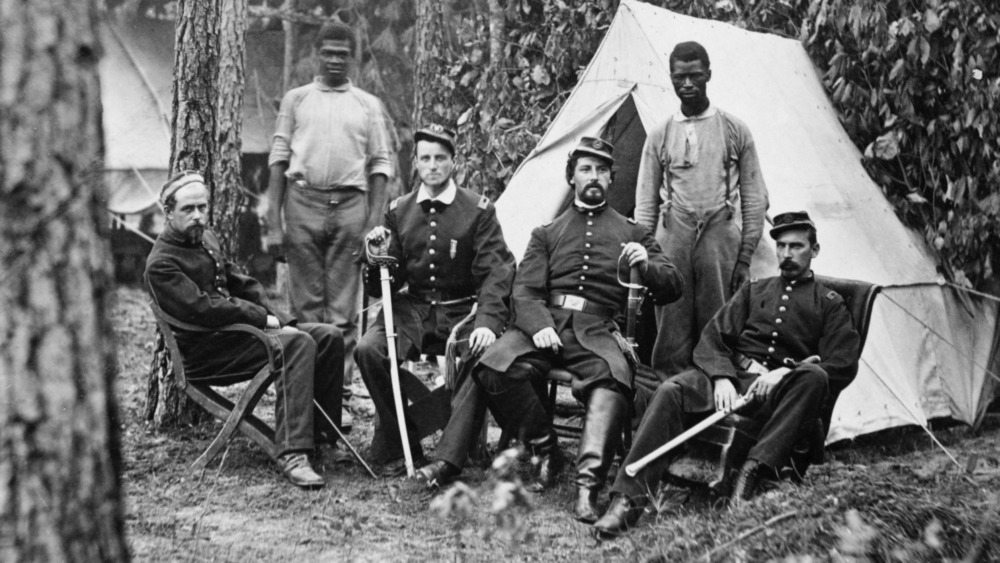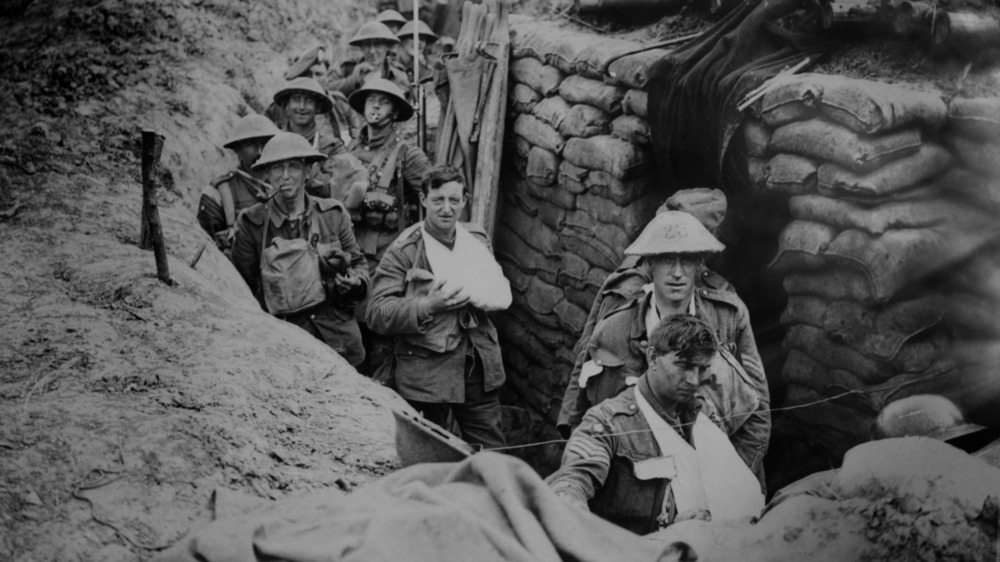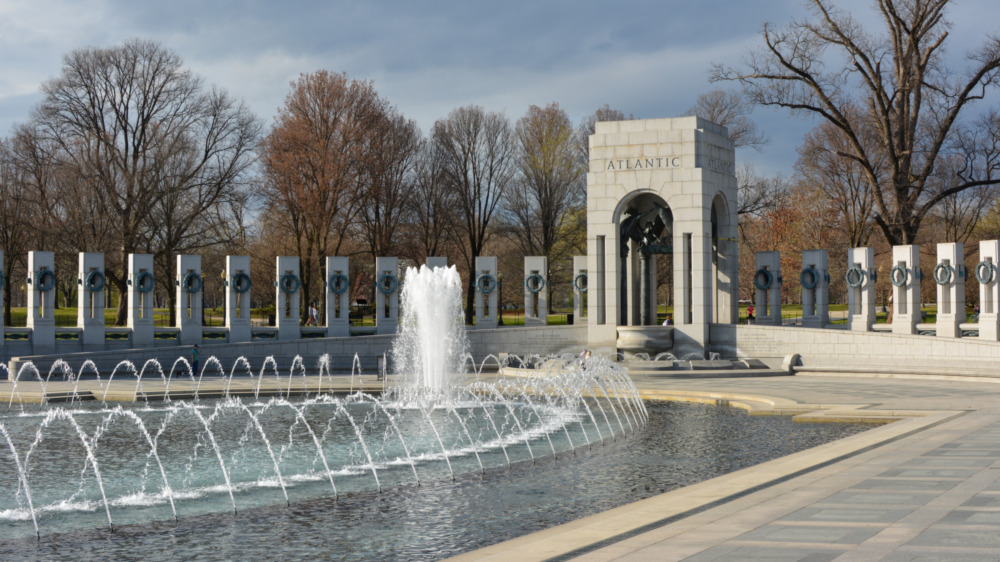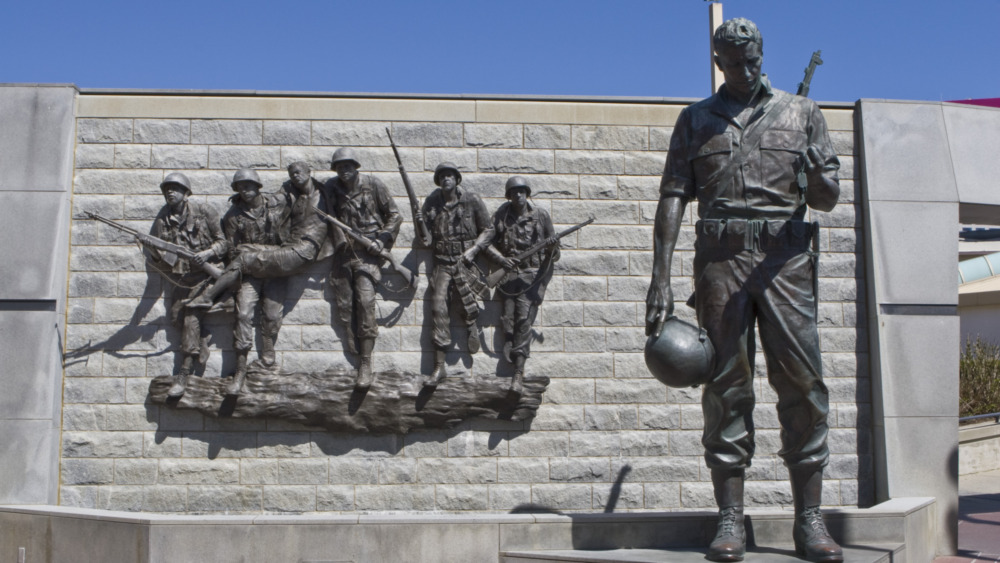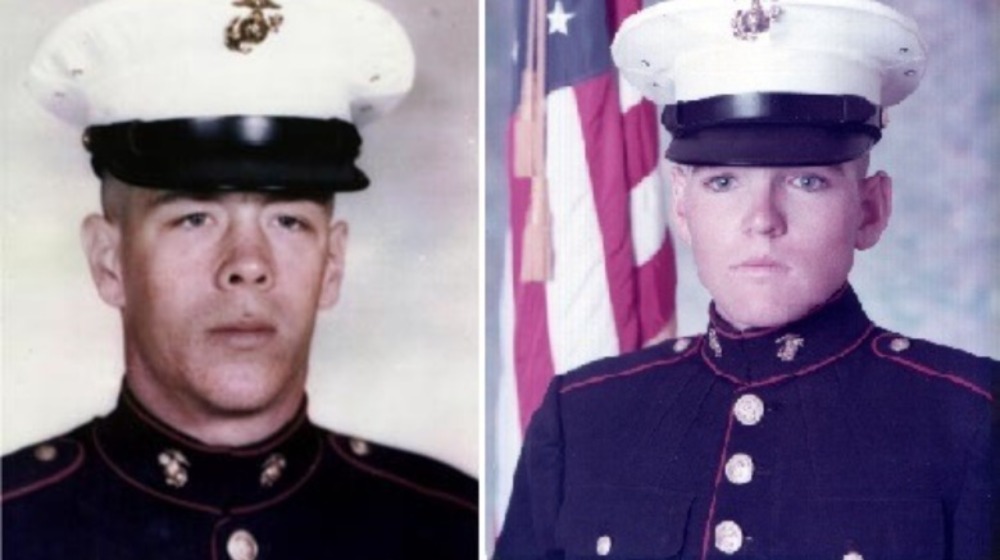These Were The Last People To Die In Major Wars
War is hell. Of that, there is no doubt. War is also a deep well of trivia, with facts and figures about battles, casualties, survivors, and other minutiae serving as fodder for amateur and professional academics and historians, debating what's known, formulating reasonable (or unreasonable) assumptions about what happened, and when, and to whom.
Sometimes, the stories of the last living survivor of this war or that war can make for compelling TV. For example, imagine a centenarian Civil War soldier telling his story in the 1950s, using the then-new medium of television. The juxtaposition of a man who fought for the Union or Confederacy telling his story to Milton Berle or Ed Sullivan must have shocked viewers in those days.
However, one bit of trivia that is often overlooked in these discussions is the name of the last person to die directly in a certain war — the last fatality of the conflict. Not the last person to have served in a war to later die of old age or other causes; but rather, the last person to die in a particular war. This article will tell those stories.
History didn't record the name of the last person to die in the Revolutionary War
The American Revolution was, among other descriptors, a confusing time. Record-keeping was considerably less diligent then than it is now when it comes to keeping track of names and events, and as such, the name of the last man (or woman) to die during America's war for independence managed to slip through the cracks of history.
The last major battle of the Revolutionary War, according to the John Jay Library of Criminal Justice, was the Battle of Yorktown in 1781. There, a combined American and French force captured British General Cornwallis and his army, forcing the British to the negotiating table and, ultimately, bringing the war to an end.
As British Battles notes, when the dust had settled on the Virginia conflict, 500 British, 80 Americans and 200 French had been killed and/or wounded. Unfortunately, history did not record the name of the last man or woman to die in that battle.
John J. Williams was the last man to die in the U.S. Civil War
The U.S. Civil War officially ended at the Battle of Appomattox Courthouse in April of 1861. However, news traveled slowly in those days, and, according to My New Orleans, several small-scale skirmishes popped up over the weeks and months following Lee's surrender.
One such skirmish was at the Palmito Ranch in Texas, where the 34th Indiana joined forces with a small Union detachment at Brownsville to carry out an attack on a Confederate stronghold in the city — this despite both sides being fully aware that the war was over, and despite a truce being in effect between the belligerents in that part of Texas.
At least 100 Union soldiers died in the battle, and one of those was John J. Williams (born in 1843) of Indiana, who took a Confederate bullet and was left to die on the battlefield. Enemy soldiers stole his shoes, pants, socks and hat, although the $45 in his pocket (a princely sum in those days) managed to make it back to his widow.
Williams is buried at the Alexandria National Cemetery in Louisiana.
Henry Gunther was the last person to die in World War I
Whereas John J. Williams died months after his war had officially ended, the last person to die in World War I might have survived had he managed to last just one more minute.
As Time reported, during the waning minutes of The Great War, on November 11, 1918, Maryland's Henry Gunther (born in 1895) was in Chaumont-devant-Damvillers, France, across the lines from the Germans. The enemy soldiers knew that the minutes were literally ticking down on the war and that an armistice would be signed in seconds and, thus, held their fire.
Gunther, however, for reasons known only to him, charged at the Germans with his bayonet, even as his enemies reportedly urged him to go back to his own side. Gunther disobeyed, and for his efforts received machine gun fire from the Germans. Moments later, the two sides signed a peace agreement, and the war was over.
Historian James M. Cain noted that Gunther had earlier been demoted from the rank of sergeant to that of private due to the unflattering depiction of the war he wrote in an intercepted letter he sent home, and that the soldier might have charged headlong into his death in order to prove himself a good soldier.
U.S. Army Sergeant Anthony J. Marchione was the last American to die in World War II
Like his fellow soldier John J. Williams, Anthony J. Marchione had the misfortune of dying in war after the war was already officially over.
On August 18, 1945, according to Air & Space, Marchione and his crew were in the clouds above Tokyo, flying a photo-reconnaissance mission over the city to monitor Japan's compliance with a cease-fire it had agreed to just days earlier. Unfortunately for Marchione, some elements within the Japanese military, unwilling to accept that Emperor Hirohito had surrendered, openly rebelled against their leader's cease-fire orders. And on that fateful day, a Japanese unit opened fire on the aircraft carrying Marchione and the rest of his crew. The Pennsylvania photographer was fatally wounded in the attack and, like so many American men before him, died, bleeding in the arms of a fellow crew member in the skies above the Pacific.
He was posthumously awarded the Purple Heart, according to The Pottstown Mercury.
The name of the last person to die in the Korean War is unknown
As is the case with the Revolutionary War, the name of the last person to die during the Korean Conflict escaped the annals of history.
On July 27, 1953, the Korean Armistice Agreement was signed, effectively putting an unofficial end to the war that is, officially anyway, still going on to this day. As Richard E. Ecker wrote in Battles of the Korean War: A Chronology, with Unit-by-Unit United States Causality Figures & Medal of Honor Citations, a week earlier the last major battle of the war occurred. Chinese, American, and South Korean forces exchanged fire at the Battle of Kumsong, during which at least 300 Americans, 2,600 Koreans, and 9,000 Chinese were killed, and thousands more wounded.
Unfortunately, in the fog of war, the name of the last person to give their life to the cause, regardless of which side they were on, failed to be recorded for posterity.
Charles McMahon and Darwin Judge died together in the final hours of the Vietnam War
The Fall of Saigon is considered to be the official end of the United States' involvement in the Vietnam War. On April 30, 1975, the city fell, effectively putting an end to the war that, by that point, had claimed tens of thousands of American lives.
The day before the city fell, two Marines, Charles McMahon (above left) and Darwin Judge (above right), were stationed at Tân Sơn Nhứt air base, along with a few dozen companions, according to CBS News. Unfortunately, the base came under attack from North Vietnamese rocket fire, and the two men died at the same time.
However, the Marines' bodies remained in Vietnam for months afterwards. It wasn't until then-Senator Edward Kennedy was able to lobby for the return of the men's remains, in 1976. They were both subsequently buried stateside with fully military honors.
The Fall of Saigon Marines Association created two scholarship funds in Judge's name.
